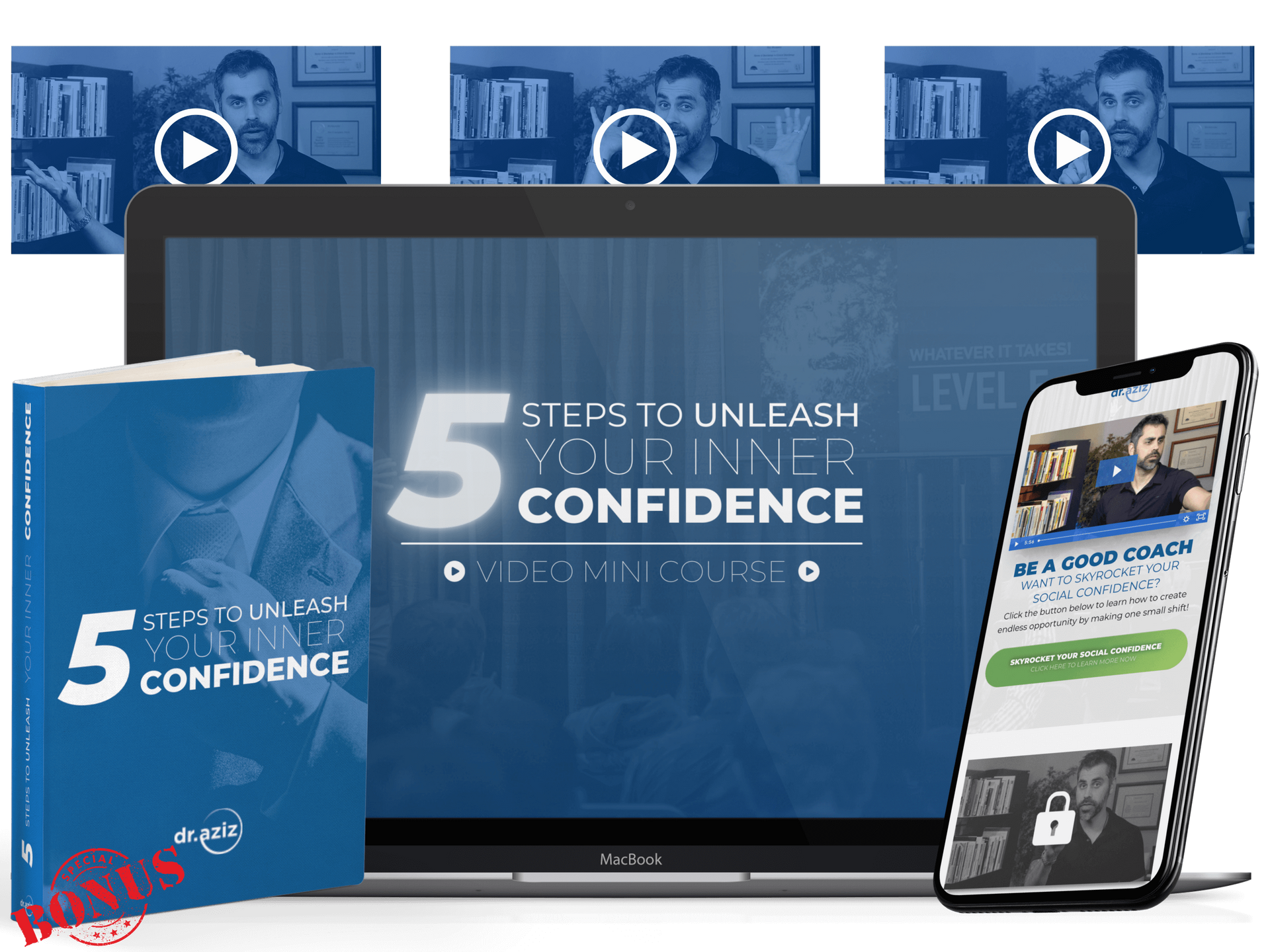Social Anxiety Disorder Explained (The REAL Cause)
Nov 28, 2024Do you feel like social anxiety is something you’ll just have to live with forever? What if I told you that social anxiety isn’t a permanent condition and that you can learn to break free from it? In this post, I’m going to reveal what social anxiety really is and how you can overcome it for good.
Social Anxiety: It's Not What You Think
Most people think of social anxiety as a condition or a mental health disorder. They might assume it’s something chemically wrong with their brain or nervous system. But here’s the truth: social anxiety is a pattern of behavior that you’ve learned over time. It’s not a “thing” that you have—it’s something you’ve been practicing.
I can tell you firsthand that I’ve been there. For years, I felt trapped in social anxiety, constantly worried about what others thought of me. But here's the key insight: social anxiety is a learned misperception of yourself.
A Learned Misperception: Why You Feel "Less Than"
Think of social anxiety like a pair of glasses you’ve been wearing that distort how you see yourself. It’s not that you are "less than" or unworthy, but that's how you've learned to see yourself. Maybe this perception came from your parents, schoolmates, or even experiences as a child. Over time, these messages get internalized and create the belief that you are unlikable, less capable, or inadequate.
This is where the shift happens: Once you recognize that social anxiety is based on a misperception—not some inherent flaw about who you are—you can start to change it.
The Danger of a Calcified Identity
When this misperception takes hold, it doesn’t just fade away—it becomes what I call a calcified identity. Like hardened arteries, this belief about yourself becomes rigid, unchangeable, and deeply entrenched. You might think, "This is just how I am," but that couldn’t be further from the truth.
Here’s the good news: just because you’ve believed this for years doesn’t make it true. The moment you start questioning these beliefs and challenging the perceptions you’ve internalized, you begin to open the door to a new reality.
How to Break Free from Social Anxiety
The key to freeing yourself from social anxiety is to recognize it for what it is—a pattern—and to consciously choose to shift that pattern. Over time, with persistence and practice, you can begin to replace the old, negative belief systems with new, empowering ones.
- Understand the Pattern: Realize that social anxiety is not an identity—it’s something you’re practicing. Once you see it for what it truly is, you can stop reinforcing it and begin to unlearn it.
- Challenge Your Perceptions: The core of social anxiety lies in the belief that you are unworthy or unlikable. Begin questioning these beliefs. Ask yourself, “Is this true? Where’s the evidence?” The more you challenge these thoughts, the less power they will have over you.
- Take Action: The best way to change a pattern is to interrupt it with new behavior. Begin small—talk to people, step out of your comfort zone, and gradually start to feel more confident in social situations. Each time you face your fears, you strengthen a new, healthier pattern.
You Can Do This
Overcoming social anxiety is not about magic or a quick fix. It’s about taking consistent, intentional action toward challenging old patterns and building new, empowering ones. You don’t have to stay stuck in this forever.
If you take nothing else from this post, take this: you can change this. There’s hope, there’s opportunity, and with the right tools, you can create a new, empowered version of yourself.
Remember, this isn’t a journey you have to take alone. If you're ready to break free from social anxiety, I’d love to support you on that path. Until then, know that you are awesome just as you are, and you have everything it takes to thrive.
Reading blogs and watching videos online is a start...
When you are ready to radically transform your confidence so you speak up freely, boldly go after what you want, connect easily with others and be 100% unapologetically yourself, coaching is the answer.



